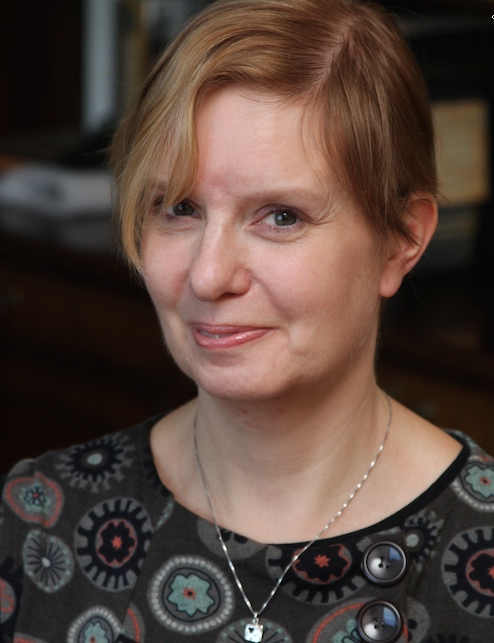Our second consortia workshop, co-hosted with LYRASIS in Atlanta, US on May 19 – 22, was attended by ORCID consortia leads, Board members, and staff from around the world — from Australia to Brazil and beyond! Through a program of sessions based on direct input from the four consortia in the Americas (Brazil, Canada, and two in the US), we got to listen and learn from each other, and share our ORCID knowledge and experiences.
Highlights included:
ORCID Integrations Through the Eyes of… Board members Richard de Grijs, Veronique Kiermer, Daisy Selematsela, and Chris Shillum shared their experiences of ORCID from the perspective of (respectively) a researcher, an author and publisher, a grant applicant and funder, and a database platform. It’s always good to “see yourself as others see you” — the good and the bad — and our Product Director, Tom Demeranville and UX Designer, Mallory Robertson came away with lots of feedback! They’ll be updating our Product Roadmap and User Feedback Trello boards with planned improvements in the coming weeks and months.
Where Will We Be In 2025? A future-gazing session with ORCID Executive Director, Laure Haak, Board members, Linda O’Brien and Chris Shillum, and consortia leads, Poul Melchiorsen and Steve Pinchotti. After the speakers shared their own views on the topic, we broke into four small groups and spent time discussing:
– Services. What services would be most helpful for consortia leads? What member self-service functionality would be really helpful for consortia?
– Managing costs. Can we be more efficient in managing service costs while continuing to deliver excellent services? What are major cost drivers for consortia leads?
– Measuring progress. What metrics will help monitor progress? Is the Collect & Connect badging program useful? What would be useful measures of progress/success?
– Assessing value. What evidence would be appropriate for assessing consortium lead maturity?
Keynote: Karin Wulf. Since 2019 is our Year of the Researcher, we wanted to make sure that the researcher perspective was represented in the workshop. Board member, historian, and Director of the Omohundro Institute, Karin Wulf, provided a great start to the event with her keynote on the challenges and opportunities of using ORCID as a humanities scholar.
We also had a special guest — former scientist, funder, and PID enthusiast, Carly Strasser, now Director of Academic Alliances and Data Strategy at Fred Hutchinson Cancer Research Center. In her own inimitable style, her presentation summed up what she learned at the workshop, by drawing parallels between ORCID and the city of Atlanta, including:
Problem-solving. Just as Atlanta helped address civil rights issues, so ORCID is helping solve problems for researchers, including reducing the need to manually enter data (for example when applying for a grant with the Australian Research Council); providing a portable identifier that they can use to connect with their tools wherever they work; and eliminating static CVs.
Diversity. Atlanta embraces diversity, and so does ORCID. Our community includes individuals and organizations across all sectors, regions, and disciplines — ORCID users and non-users, members and non-members. Ensuring that we understand and meet the different needs of these communities is essential to achieving our shared vision.
Growing. Atlanta is known as the city in a forest, with trees growing in 48% of its land. The ORCID community is also growing, in part as a result of the advocacy efforts of our consortia leads and their members. These include an initiative by the University of Texas Southwest Medical Center that resulted in 2,000 students registering for an iD in just six months; consortia lead Altum’s work on the career impact of funding programs; and Macquarie University’s systematic program of encouraging ORCID registration for all faculty and updating their records with affiliation information.
Misunderstandings. There are no fewer than 26 streets named Peachtree in Atlanta, after the Creek Indian village near what is now the Buckhead area of the city. But some experts believe that peachtree is actually a corruption of pitch tree. Our consortia leads shared with us some of the ORCID myths and misconceptions they encounter in their communities, such as “ORCID Is just another profile system”, “I want my privacy”, “Librarians will manage my profile”, and more. We need to help address these misunderstandings through better messaging for researchers.
The journey. The American historians among you will know that Atlanta is famous for, among other things, being the starting point for General Sherman’s march to the sea. A key theme of our consortia workshop was the user journey, including an interactive session, led by Mallory Robertson, on how we are engaging with users to help improve the UI.
Our thanks to everyone who attended the workshop, and shared their experiences and expertise. You can find all the presentations, posters, and videos in our repository. Like all ORCID resources, they’re available under a CC0 license, so feel free to download and use them in your own community!
